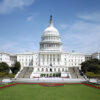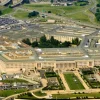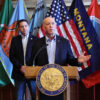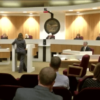California’s free Medi-Cal to cover illegal immigrants amid healthcare shortage

(The Center Square) – Beginning January 1, illegal immigrants will be able to qualify for and use Medi-Cal, California’s taxpayer-funded free and low-cost healthcare plan for low-income residents. Experts warn that the state is already facing a healthcare shortage as a new $25 healthcare minimum wage threatens to reduce staffing levels — and doctors who accept Medi-Cal’s low reimbursement rate — even further.
By expanding Medi-Cal eligibility to illegal immigrants between the ages of 26 and 49 under SB 184, an omnibus spending bill, California will add an estimated 700,000 users to the Medi-Cal system at a cost of $2.7 billion per year.
With Medi-Cal’s reimbursement rates for doctors significantly lower than what typical insurers pay, the number of doctors serving Medi-Cal patients could decline even as nearly one million users join.
“Many on Medi-Cal are already having a hard time finding doctors to treat them because of low reimbursement rates these doctors receive from the government,” said Sally Pipes, president and Thomas W. Smith Fellow in healthcare policy at the Pacific Research Center. “If those on Medi-Cal can find a doctor, they are facing very long waits for care.”
California already faces major doctor and healthcare staffing shortages.
Under the “public charge” rule for those applying for green cards or citizenship, the government may reject applications from individuals who are dependent on government aid. Medi-Cal benefits are only factored if the individual makes long-term use of nursing or mental health institutions. While use of Medicaid and other taxpayer-funded free or low-cost healthcare programs was considered under public charge determinations under the Trump administration, the Biden administration ended this practice.
Should the number of illegal immigrants in California increase due to this decision, it’s likely Medi-Cal spending would increase as well. California will soon face a $68 billion budget deficit and has instituted a spending freeze for the remainder of the current fiscal year.











